Transformative agricultural innovation systems require leaders and institutions that are responsive to the changing landscape of Southeast Asian agriculture. To provide innovative solutions to the rising challenges in agriculture and the environment, the Southeast Asian Regional Center for Graduate Study and Research in Agriculture (SEARCA), in partnership with the International Union for Conservation of Nature (IUCN), launched a pioneering program on Transformational Agricultural Innovation Systems for the New Future (TrAInS) on 16 November 2022.
With 30 participants from various Southeast Asian higher education institutions, government ministries and agencies, non-government and farmers’ organizations, and private and civil society organizations who are actively involved in research and extension activities, TrAInS is a nine-week online training-workshop that seeks to engage the participants in developing collaborative, transformative programs for agricultural development.
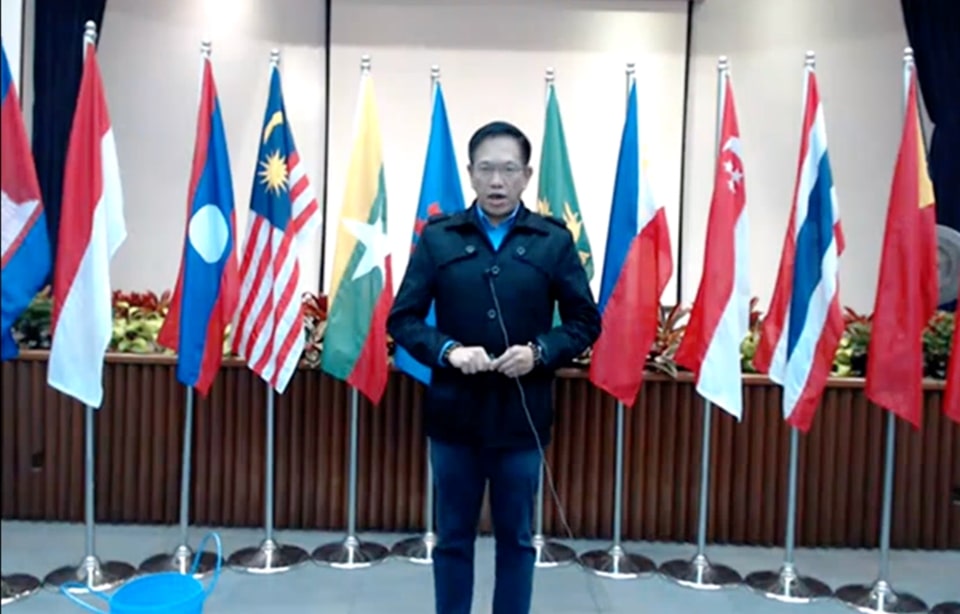
In his opening message, SEARCA’s Deputy Director for Administration, Assoc. Prof. Joselito G. Florendo explained that the program is the Center’s response to the disruption of the region’s food supply chain during the COVID-19 pandemic and the “pressure to meet the increasing demand for food and changes in food patterns and expenditures, address climate change impacts and environmental degradation.” Dr. Florendo expressed his eagerness to see what the innovative program's participants will propose that may “positively impact their agricultural innovation systems and foster transformation towards the delivery of a “triple win” – increased productivity, improved food safety, and enhanced sustainability.”
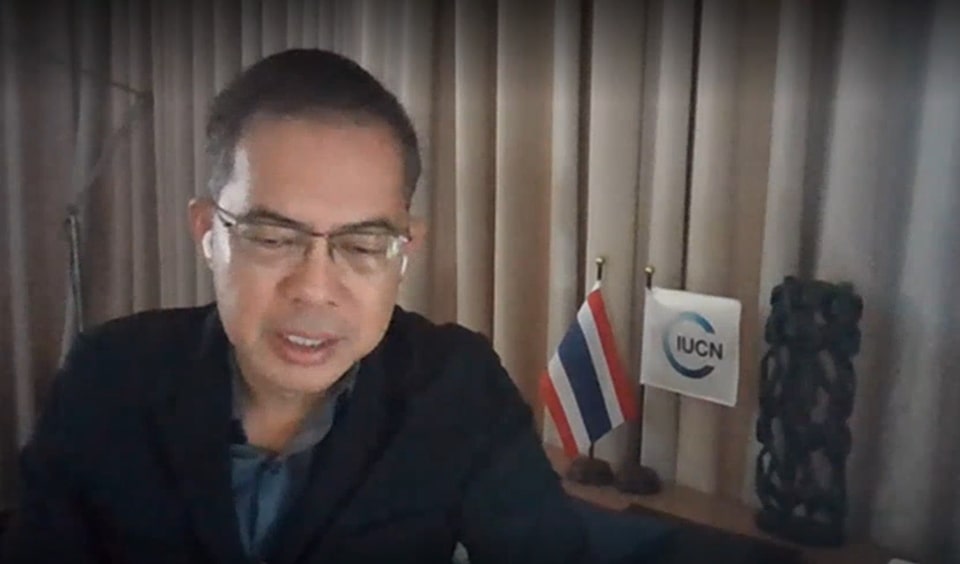
The participants were also welcomed by Dr. Dindo Campilan, IUCN’s Regional Director for Asia and Oceania Hub. The online training-workshop, according to Dr. Campilan, is “transformational,” “experiential,” and “novel.” It takes place at a time when there are parallel and ongoing dialogues, conversations, and changes happening around the world. Dr. Campilan reminded the participants that the challenges in agriculture aren’t confined, “transformation isn't just happening within the agricultural sector – what happens to agriculture happens to other sectors and vice versa.” With this, he invites participants to look at the issues in agriculture through different lenses and levels.
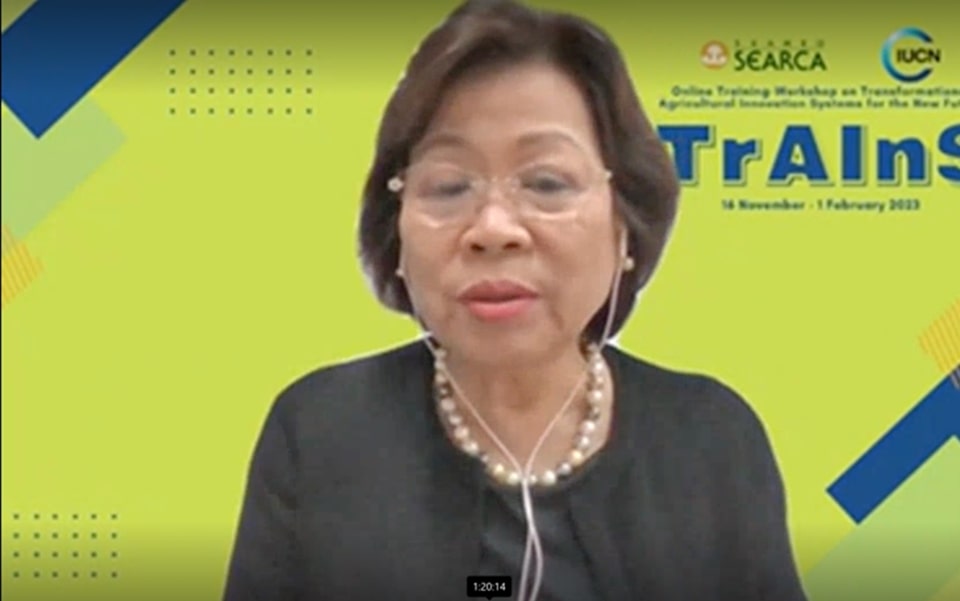
Guided by the agricultural innovations systems (AIS) framework, Dr. Virginia R. Cardenas, TrAInS Technical Coordinator and Lead Facilitator, said that the online training -workshop consists of five modules spread across eight sessions. These modules include (1) transformation of agriculture (sessions 1 and 2), (2) promoting innovations in the agricultural systems (sessions 3 and 4), (3) a new breed of agricultural leaders (sessions 5 and 6), (4) promoting transformations in the agricultural innovations systems (sessions 7 and 8), and (5) defining agriculture for the future. The program has three specific outcomes, namely, a roadmap, a competency gap analysis, and a proposed action plan for innovative interventions.
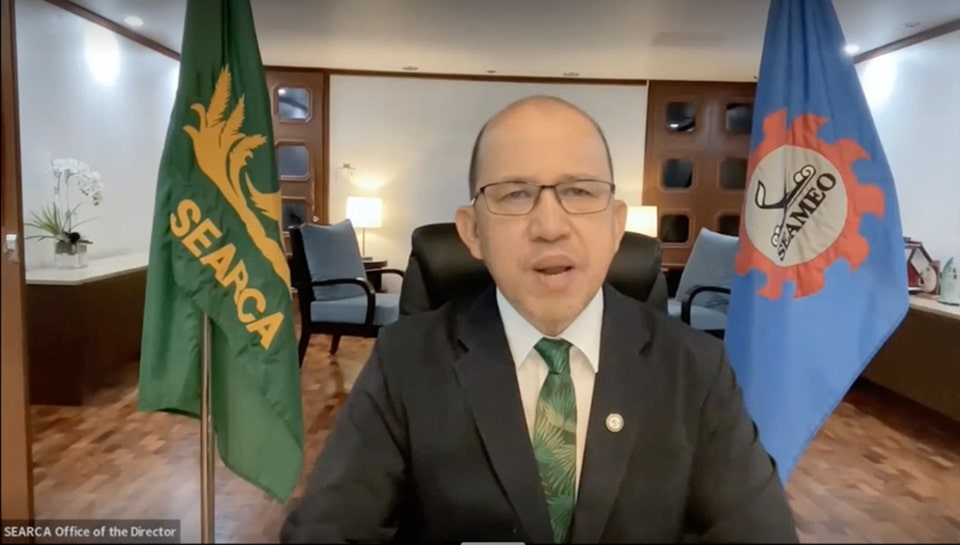
SEARCA’s Director, Dr. Glenn B. Gregorio, delivered the first lecture discussion with the topic “Agriculture and Development,” taking into consideration the Vision of ATTAIN (Accelerating Transformation Through Agricultural Innovation). Dr. Gregorio started his lecture by introducing SEARCA and its role in transforming the agriculture sector in Southeast Asia. According to Dr. Gregorio, SEARCA, under its 11th Five-Year Plan, is tasked to contribute towards strengthening and transforming the agricultural food system in Southeast Asia. Through this framework, the Center aims to aid in reshaping and transforming the quality of life and well-being of farmers and farming communities.
Transformation and innovation are attained by working side by side with farmers. “We want to walk with the farmers, learn from them, share our ideas with them, show them new innovative ways of farming, work with them, and change their mindset to make them more productive alongside cultivating an entrepreneurial spirit,” Dr. Gregorio emphasized. He further presented the programs and activities that SEARCA has initiated towards agricultural and rural development in the region.
The lecture was followed by presentations of the pre-training assignment where participants presented the status of his/her country’s agricultural innovation system, how research and extension contributed to the country’s agricultural performance and to AIS, and AIS strengths and weaknesses. One of the highlights of Session 1 is an interactive workshop which allowed the participants to assess and reflect on the challenges and opportunities in agricultural growth. Session 1 ended with Dr. Cardenas providing the synthesis of the workshop where she identified challenges in agricultural growth, factors that influence agricultural performance, with focus on the role of research, extension, and market systems.
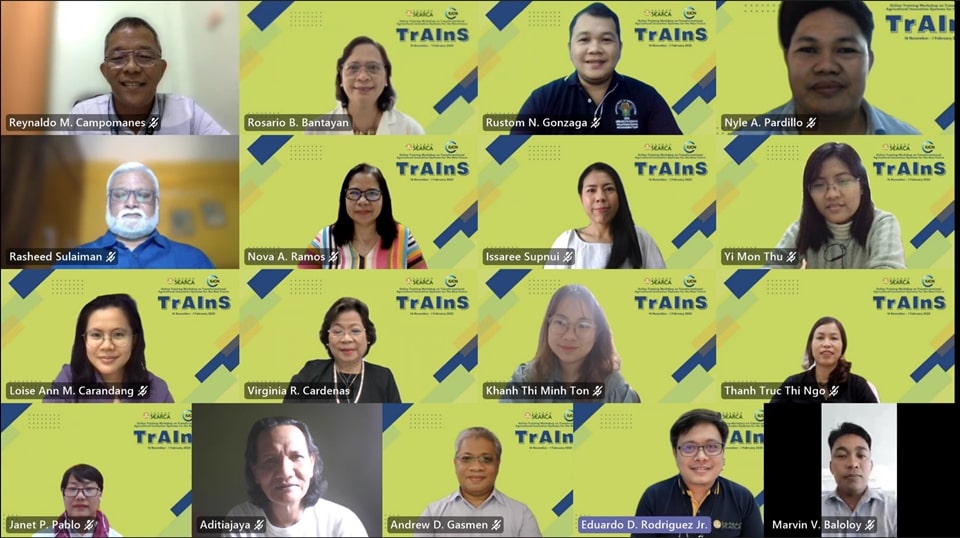
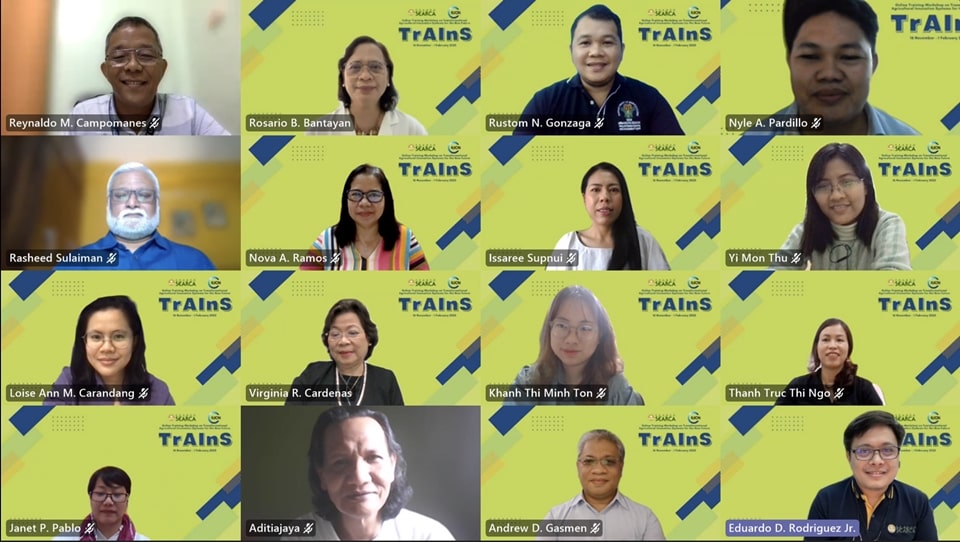
Succeeding sessions of the training workshop will feature the following experts: Dr. Rasheed Sulaiman, Director, Centre for Research on Innovation and Science Policy (CRISP); Mr. Pierre Ferrand, Agricultural Officer (Agro-ecology), FAO Regional Office for Asia and the Pacific; Dr. Jose DV. Camacho, Jr., Chancellor, University of the Philippines Los Baños (UPLB); Mr. Jim Leandro Cano, Head, Knowledge Management and Digital Solutions, Nature Tech Innovation Group, Inc.; and Mr. Shermon O. Cruz, Chief Futurist, and Executive Director, Center for Engaged Foresight, Philippines. Dr. Campilan shall serve as co-facilitator during the session on Guided Scenario Building and Program Planning.
SEARCA's Education and Collective Learning Department-Training for Development Unit (T4DU) oversees the implementation of the training-workshop. Along with the Management Information Systems Unit (MISU), they will provide both the technical and administrative support for the program.